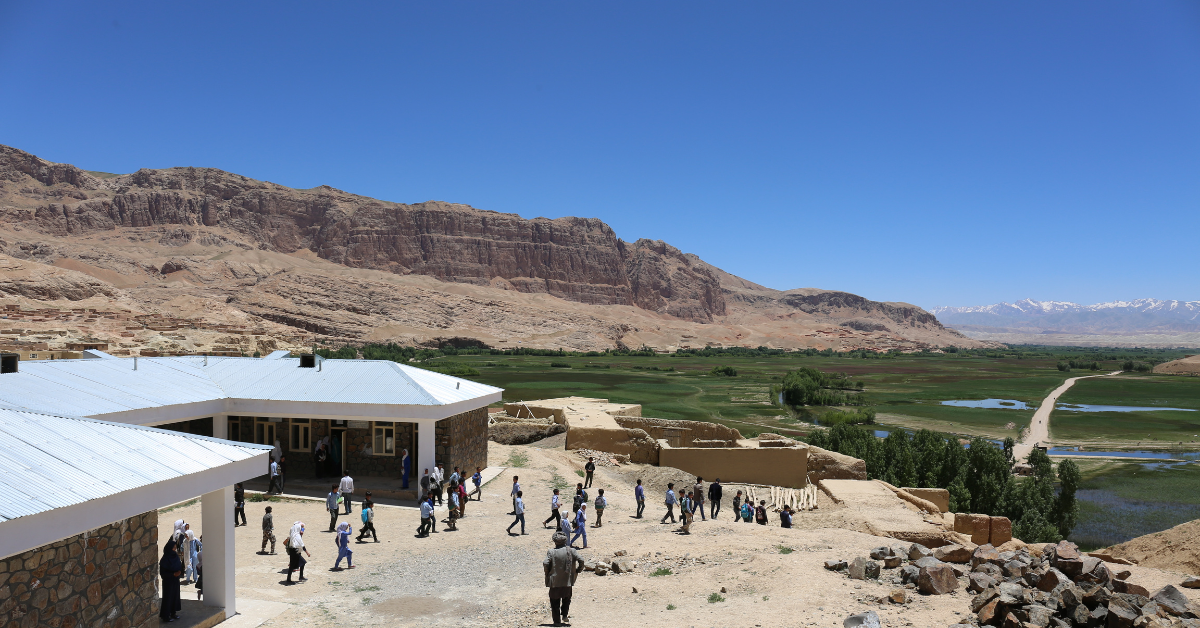SCA conference: Afghanistan beyond humanitarian support – navigating challenges and opportunities
SCA is organising its biennial international conference in Stockholm on 30th November, 2023. The conference will gather experts, policymakers, civil society, and academia to discuss the latest developments in Afghanistan.

Date: 30th November 2023
Venue: In Stockholm and livestreamed via this link
More than two years have passed since the de facto authorities (DFA) takeover. The DFA have imposed their strict interpretation of sharia law, and the regime continues to restrict the freedom and rights of Afghan women, despite promises to the contrary. The conditions for the international community and aid organisations to operate in Afghanistan are challenging. The economic situation continues to spiral downwards, and the country is in a critical humanitarian crisis. The situation is further exacerbated by the effects of natural disasters and climate change.
Decades of progress in maternal healthcare and girls’ access to education are at risk of being lost. The international community has an important role to play. But how should international actors relate to, and engage with, the DFA? How can we protect the gains from the last 20 years? And how can the long-term development efforts continue to evolve and support the Afghan people?
PROGRAMME:
8:15 – 09:00 Registration
09:00 – 09:30 Introductory session
Azadeh Rojhan, Chair of the Swedish Committee for Afghanistan
Andreas Stefansson, Secretary General of the Swedish Committee for Afghanistan
09:30 – 10:15 SESSION 1: Standing by the Afghan people to meet new challenges
Two years after the DFA takeover, the humanitarian situation in the country has deteriorated. The restrictions for women and girls are increasingly more severe and under constant scrutiny. Between 2020 and 2022, the country’s economy contracted by about 30 per cent. Diplomacy is stalemated. According to the United Nations, 9 out of 10 Afghans live in poverty. In short, the country is in the midst of a crisis on an unprecedented scale. What are the implications for the Afghan people? How can the international community work together to support the Afghan people?
Panellists:
Kate Clark, Co-Director and Senior Analyst, Afghanistan Analysts Network
Stephen Rodriques, Resident Representative UNDP Afghanistan
Samira Sayed-Rahman, Director of Policy, Advocacy & Communications, International Rescue Committee
Raffaella Iodice, Chargée d’Affaires a.i EU Delegation to Afghanistan
10:15 – 10:40 Break
10:40 – 11:00 Keynote address on the human rights situation in Afghanistan, with focus on women and girls.
Richard Bennett, UN Special Rapporteur on the situation of human rights in Afghanistan and visiting Professor at RWI.
11:00 – 11:45 SESSION 2: Supporting Afghan women and girls
Shortly after the DFA takeover, the leadership promised that “women would be active in society, but within the framework of Islam”. What this meant in reality was at the time unclear. Two years on – women’s and girls’ rights have been severely curtailed. Access to education and employment are restricted. Women and girls are systematically discriminated by the authorities. But despite a relentless issuance of edicts, decrees, declarations, and directives restricting their rights, including their freedom of movement, attire and behaviour, Afghan women continue to resist and struggle for their human dignity.
Panellists:
Orzala Nemat, Research Associate, SOAS, School of Oriental and African Studies, University in London, and a research associate at Humanitarian Policy Group of ODI
Shaharzad Akbar, Executive Director of Rawadari
Madina Mahboobi, Founder and Executive Director Vision Development Organization
Mahmoda Sonia Eqbal, Research Fellow, RWI Afghanistan Programme
11:45 – 12:00 Reflections Anna Ek, Country Director in Sweden, Swedish Committee for Afghanistan
12:00 – 13:00 Lunch break
13:00 – 13:45 SESSION 3: Approaching today’s reality – an international perspective
The international community is still debating how to engage, or not engage, with the de facto authorities of Afghanistan. Is it possible to work with a long-term perspective, under these circumstances? And what are the consequences for humanitarian and development agencies having to navigate in an increasingly complex reality of diplomatic void, international funding crisis, creation of parallel systems, and a leadership who wants to exercise a growing influence over humanitarian support and basic needs-operations within the country.
Panellists:
Ashley Jackson, Co-founder of the Centre on Armed Groups and author of Negotiating Survival Civilian–Insurgent Relations in Afghanistan
Richard Bennett, UN Special Rapporteur on the situation of human rights in Afghanistan and visiting Professor at RWI
Liv Kjølseth, Secretary General, Norwegian Afghanistan Committee
13:45 – 14:00 Break
14:00 – 14:45 SESSION 4: Building a resilient society – moving beyond humanitarian support
The United Nations and its partners recognize that humanitarian aid alone will not be enough to sustainably address the large-scale and increasing human suffering of the Afghan people in the medium and long term. At the same time, there is a donor-reluctance to development aid, and the added burden of climate disasters. Since August 2021, the economy has contracted sharply, the banking sector has fallen apart, and poverty has increased. How can the society, and the economy be sustainably rebuilt? In what way can development assistance support and empower change-makers? And what learnings can be drawn from other fragile and conflict-affected states?
Panellists:
Ulrika Modéer, UN Assistant Secretary-General and Director of the Bureau of External Relations and Advocacy, UNDP
Graeme Smith, Senior Analyst, Afghanistan, International Crisis Group
Andreas Stefansson, Secretary General of the Swedish Committee for Afghanistan
Renata Dwan, Senior Consulting Fellow The Royal Institute of International Affairs, Chatham House
14:45 – 15:00 Break
15:00 – 15:45 Closing session – Takeaways and future perspectives
Johan Schaar, Board Member, SCA, and Associate Senior Fellow with the Stockholm International Peace Research Institute SIPRI
Kate Clark, Co-Director and Senior Analyst, Afghanistan Analysts Network
Closing remark
Anna Ek, Country Director in Sweden, Swedish Committee for Afghanistan
15:45 – 17:00 Mingle